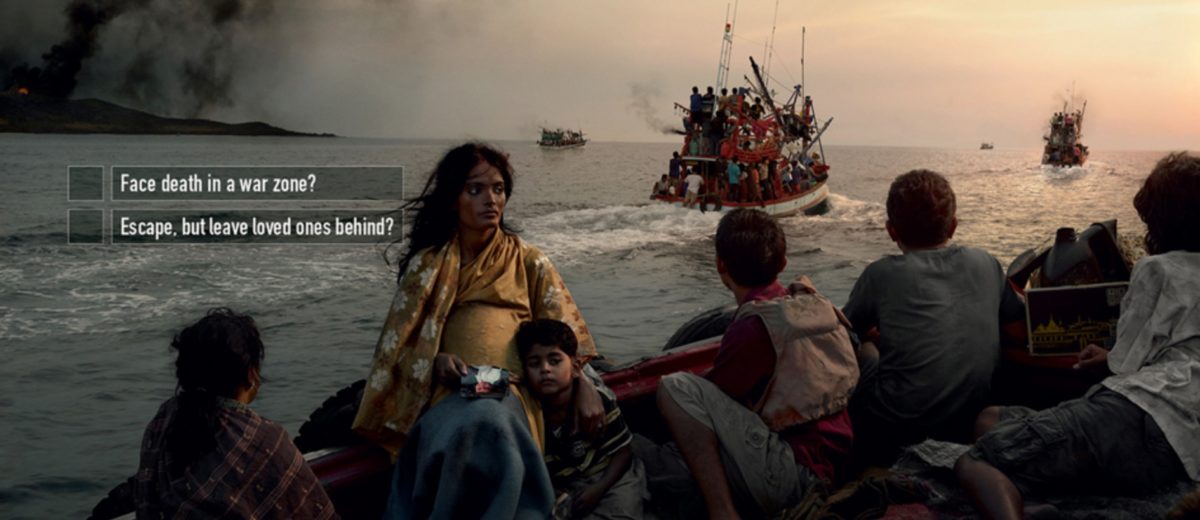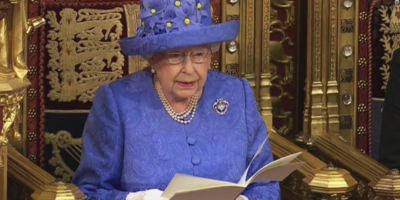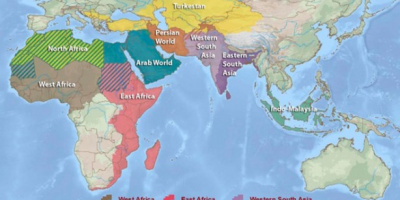The haunting slogan of the title above, reinforced by the despairing figure of a woman in a refugee camp, shouted at me from a UNHCR poster on my office wall, soon after I arrived in the Netherlands in the 1970’s. Its memory still arrests me whenever I am tempted to focus on the problems around me.
Tomorrow, June 20, is the annual UNHCR World Refugee Day, when we are challenged to reflect on both the strength and vulnerability, the courage and the fear, and perseverance and despair of millions of refugees.
Imagine having to choose between facing death in a war-torn country, or escaping and leaving loved ones behind. Imagine having to choose between paying several years’ salary to risk crossing the Mediterranean in unseaworthy flotsam or staying to face a hopeless future at home. Imagine your young wife being detained by traffickers at a border forcing you to proceed with your infant child alone.
Yesterday many churches joined together in prayer for the over 65 million displaced people in the world today. Sixty-five million! Imagine the whole population of France without a place to call home!
The 24-7 Prayer Movement has produced a helpful 7-Day Prayer Guide for Refugees and Displaced People offering reflections to encourage individuals or groups in prayer. The guide promotes engagement in the struggles and challenges facing refugees all over the world under the following daily headlines:
1. Refugees have a name: When we lump refugees together under one impersonal label, we can easily forget that each refugee has a personal name, a family name and a distinct identity known to God. He knows each story and loves each person.
Hagar, Abraham’s slave girl, found herself dispossessed and on the run. Yet God met with her in her desperation. She gave this name to the Lord who spoke to her: “You are the God who sees me,” for she said, “I have now seen the One who sees me.” That is why the well was called Beer Lahai Roi – Genesis 16:13-14 (NIV). [Beer Lahai Roi means ‘well of the Living One who sees me’.]
2. Everybody needs a home: Speaking with refugees and displaced people, you quickly realise that most don’t want a ‘better life’ somewhere new. They want a safe and stable life in their home country. They want to go home.
Our stereotypes may perceive that refugees are the poorest families without belongings and possessions, yet in reality many have had to leave their home comforts behind.
3. Families belong together: In times of war, families become separated. Children get lost. Fathers go on ahead. Family members drown at sea. It is almost impossible for us to imagine what it is like to be disconnected from blood relatives, isolated and alone.
We need to pray for the vulnerable, lost and frightened, those separated from their families. Can we help refugees find a sense of family and home by hosting them in our home or community? What initiatives of support can we find online?
4. Don’t turn your back: The lyrics to U2’s Sunday Bloody Sunday read:
And it’s true we are immune
When fact is fiction and TV reality
And today the millions cry
We eat and drink while tomorrow they die.
It is easy to become immune and apathetic to the challenges of refugees in Europe, the Middle East, Africa and beyond. Yet Jesus saw the multitudes harassed and helpless, and did not turn away. He did not turn his back.
Neither must we. We must persevere in giving a voice to the voiceless. We must not stop looking because it is too painful. With Christ’s help we will face the reality of suffering in the world with a sense of hope.
5. Can we really pray for peace? World peace can easily become a routine prayer we use when we can’t think of anything else to say in response to difficult situations. Yet we should regularly and passionately be praying for peace to prevail in our broken world. When peace breaks out, the world changes. Prayer is powerful. Our God answers prayer. Let us continue to persevere in prayer.
6. What can I do? As Christians we are called to take action against injustice. We can give to agencies directly involved with refugee work. We can form prayer groups to continue in prayer after this week; even when not physically together, by committing to stop and pray together at a certain time of the day.
We can engage in advocacy programmes and talk to our church leaders about what as a church we can do, using this resource pack full with ideas.
7. Leaders who are peacemakers: We need political leaders who will be peacemakers, working to bring justice, stability and an end to the refugee crisis. Let’s pray for compassionate and righteous leaders to influence our nations as peacemakers.
And always remember: a refugee would love to have your problems.
Till next week,



